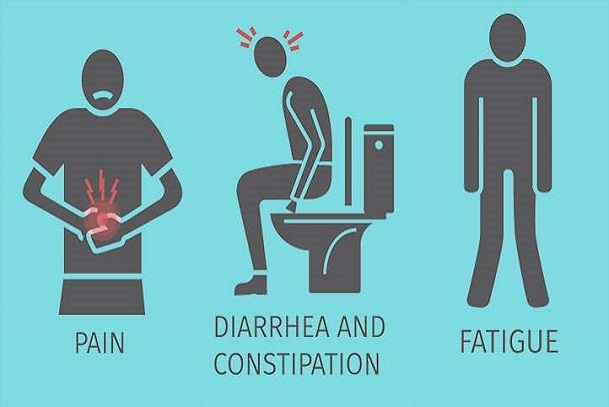 Wash your hands regularly and wear a face mask.
Learn more
Wash your hands regularly and wear a face mask.
Learn more

Cancers of the colon and rectum (colorectal cancer) start when the process of the normal replacement of colon lining cells goes awry i.e. when the cells in the colon and rectum begin to develop certain abnormalities and go bad.
Many people with colon cancer experience no symptoms in the early stages of the disease. When symptoms appear, they'll likely vary, depending on the cancer's size and location in your large intestine.
Medical doctor may use staging as a guideline to figure out how far along the cancer is. It’s important for doctors to know the stage of the cancer so they can come up with the best treatment plan due to the symptoms that might arise along with each stage.
Stage 1 colorectal cancer is the earliest stage. The stages progress up to stage 4, which is the most advanced stage. Here are the stages of colorectal cancer:
Symptoms of Colorectal Cancer
Colorectal cancer-related symptoms are numerous and nonspecific. It may not present any symptoms, especially in the early stages. It can be present for several years before symptoms develop. Symptoms vary according to where in the large intestine the tumor is located. The right colon is wider and more flexible. It can even be called relatively spacious as compared to the rest of the colon. Cancers of the right colon can grow to large sizes before they cause any abdominal symptoms. Typically, right-sided cancers cause iron deficiency anemia due to the slow loss of blood over a long period of time. The left colon is narrower than the right colon. Therefore, cancers of the left colon are more likely to cause partial or complete bowel obstruction.
If individuals do experience symptoms during the early stages, they may include:
Once an individual notice any of these symptoms, it is important to make an appointment with a medical doctor to discuss getting a colon cancer screening.
Stage 3 or 4 Symptoms (Late Stage Symptoms)
Colorectal cancer symptoms are more noticeable in the late stages (stages 3 and 4). In addition to the above symptoms, individuals might also experience:
If colon cancer spreads to other parts of the body, an individual may also experience:
[Next Article on Colorectal Cancer: Management of Colorectal Cancer]